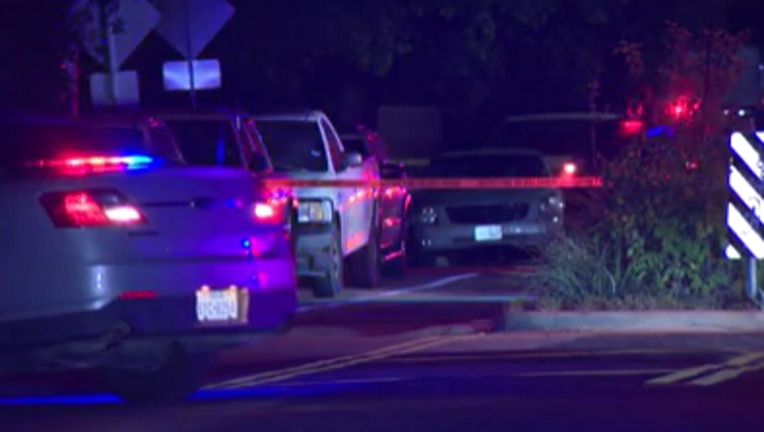PHOENIX, Ariz. — Man Fatally Shot by Glendale Police After Pointing Firearm at Officers Moments After Calling Suicide Hotline
PHOENIX, Ariz. — A deeply troubling incident unfolded early Thursday morning, when a man who had reportedly reached out to a suicide crisis hotline was fatally shot by Glendale police officers after allegedly pointing a firearm at them. The man, identified as 28-year-old Adrian Green, was pronounced dead at the scene, and the incident has sparked both sorrow and questions about mental health intervention and law enforcement response.
The shooting occurred near 59th Avenue and Olive Avenue shortly after 2:30 a.m., according to the Glendale Police Department. Officers were dispatched to the area following a call from a crisis line reporting that a man — later identified as Green — was experiencing a mental health crisis and was possibly armed.
Sequence of Events
According to Glendale police spokesperson Sgt. Gina Winn, Green had contacted a suicide prevention hotline earlier that night, expressing feelings of hopelessness and indicating he may harm himself. The crisis line operator quickly notified local authorities, providing details about Green’s location and his statements about possessing a weapon.
Officers arrived at the reported location and began searching the area, eventually locating Green outside of a vehicle parked in a nearby lot. Body camera footage, which has not yet been publicly released, reportedly shows officers attempting to speak with Green from a distance, instructing him to keep his hands visible and to remain still.
“Officers were trying to de-escalate the situation and offered help,” said Sgt. Winn during a press briefing. “However, Mr. Green suddenly raised what appeared to be a firearm and pointed it toward the officers.”
Fearing for their safety and that of others in the vicinity, multiple officers fired their weapons, striking Green. Emergency medical personnel were immediately called to the scene, but Green was pronounced dead on arrival.
A firearm was recovered at the scene, and investigators are working to determine whether it was loaded and if any shots were fired by Green during the incident.
Who Was Adrian Green?
Adrian Green, 28, was a Phoenix-area resident described by family and friends as a quiet but kind-hearted individual who had been struggling with depression and anxiety in recent years. Loved ones say he had no prior history of violent behavior and had recently begun seeking help for his mental health.
“Adrian was not a threat — he was in pain,” said his sister, Mariah Green. “He called for help, and instead of receiving that help, he was met with bullets. Our family is devastated.”
Green had been working part-time and had ambitions of returning to school to study psychology, hoping one day to help others facing similar struggles.
Family and Community Response
In the wake of the shooting, the Green family has called for transparency and a full investigation, questioning whether the situation could have been handled without the use of deadly force.
“When someone is in crisis and reaches out for help, they should not die for it,” said Marcus Bell, a community advocate and organizer with the Arizona Mental Health Equity Coalition. “We need to rethink how we respond to mental health emergencies. This is not justice — it’s a tragedy.”
Several local advocacy groups, including the ACLU of Arizona and Mental Health America of Arizona, have called for the release of body camera footage and a review of department protocols related to crisis intervention.
Law Enforcement Perspective and Investigation
The officers involved in the shooting have been placed on administrative leave, which is standard protocol during officer-involved shootings. The Maricopa County Attorney’s Office will oversee the investigation in conjunction with an internal review by the Glendale Police Department’s Professional Standards Bureau.
Sgt. Winn emphasized that the situation escalated rapidly and that officers made repeated attempts to engage Green peacefully.
“We understand the community’s concern and the heartbreak surrounding this incident,” she said. “We are committed to conducting a thorough, transparent investigation.”
It remains unclear how much time elapsed between Green’s call to the crisis line and officers’ arrival on scene. Crisis intervention advocates have raised questions about whether a mental health crisis team — rather than armed officers — could have responded first.
A Broader Conversation About Mental Health and Policing
The tragic death of Adrian Green highlights a growing national concern about how law enforcement responds to mental health crises. In many jurisdictions, including Phoenix and Glendale, officers often serve as first responders to calls involving suicidal individuals or those experiencing acute mental distress — a role some argue they are not properly equipped to fulfill.
In recent years, some cities have implemented co-responder models, where mental health professionals accompany police or respond independently to certain crisis calls. Advocates say the Green case underscores the need for similar models in Glendale and across Arizona.
“This was a preventable death,” said Dr. Lisa Romero, a licensed clinical psychologist and mental health policy expert. “Adrian Green’s case is heartbreaking, and it serves as a painful reminder of why mental health emergencies require mental health responses.”
What Comes Next
The Green family has retained legal counsel and is exploring civil options. They have also called for a community vigil and remembrance event to honor Adrian’s life. The vigil is scheduled for Saturday evening at Encanto Park, where supporters will gather to mourn his loss and advocate for mental health reform.
A GoFundMe campaign has been launched to assist the family with funeral costs and legal expenses.
In Memory of Adrian Green
🕯️ “He asked for help. He deserved compassion. He deserved to live.”
Adrian Green
1997 – 2025
Son, Brother, Friend, and Advocate for a Better Tomorrow

Leave a Reply